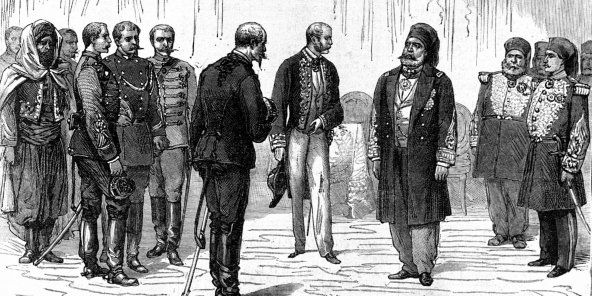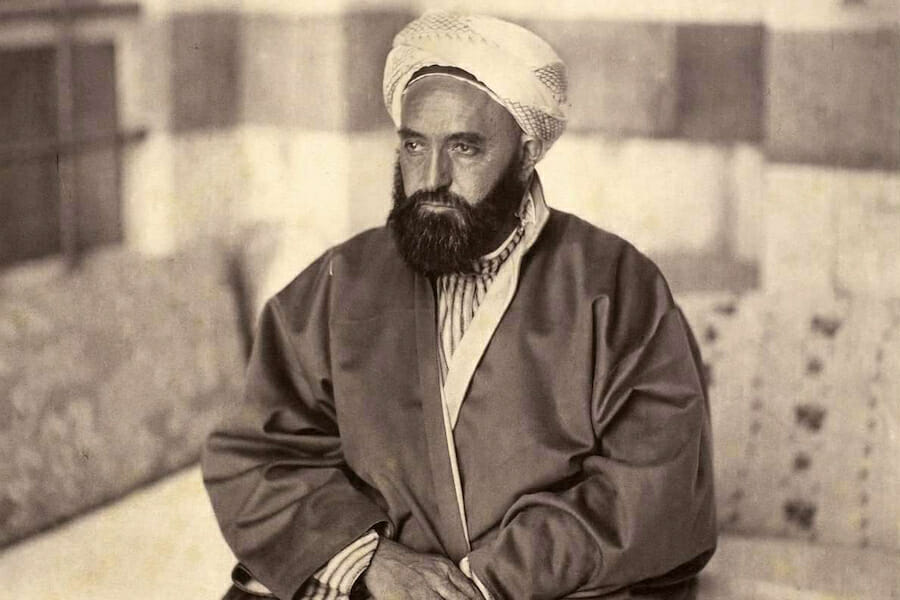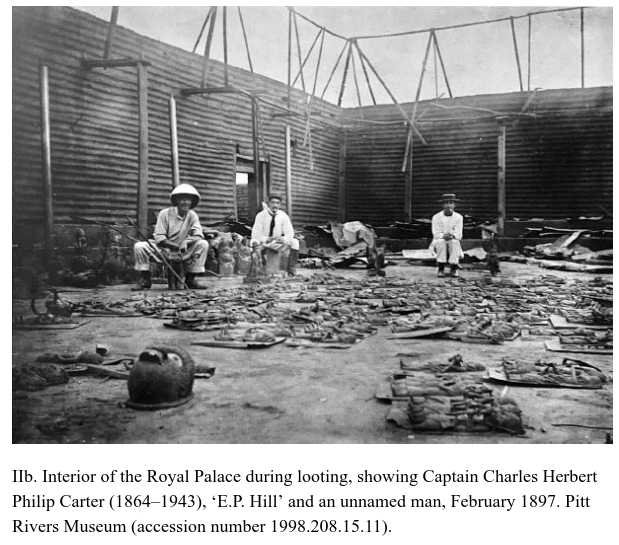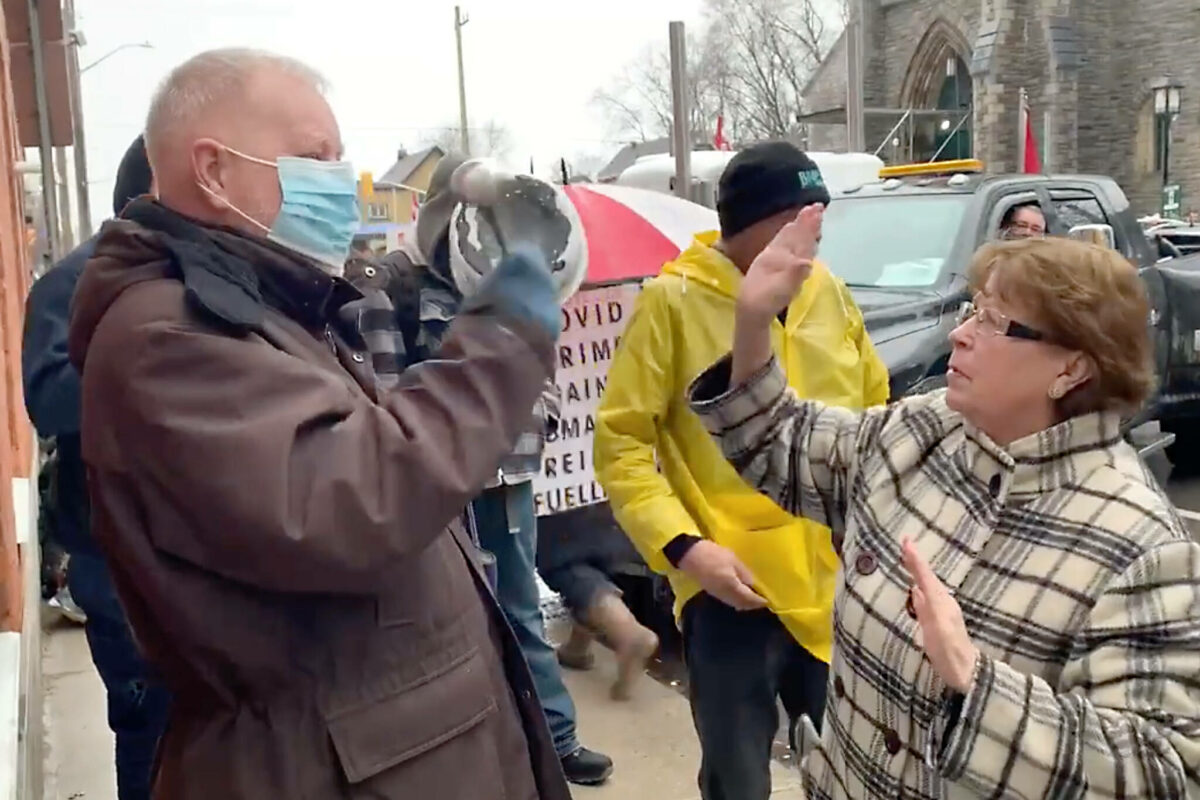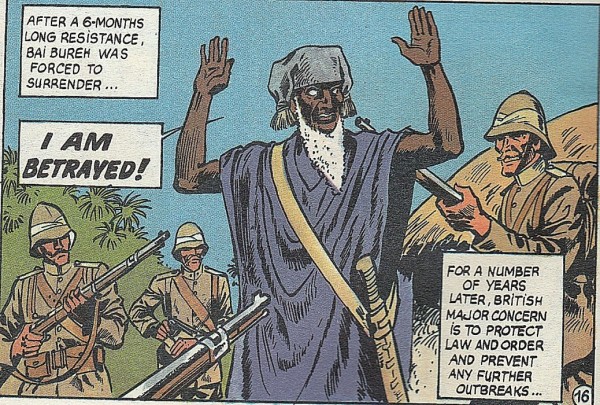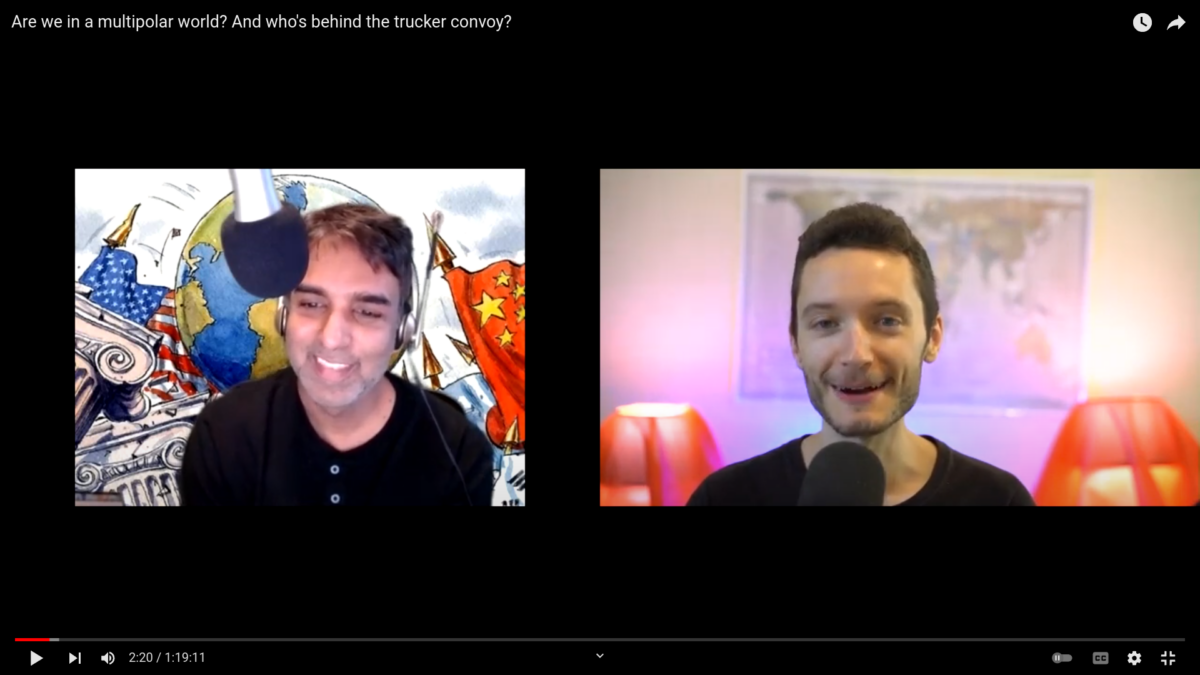More than a decade later it is well past time to look at how the Syrian Civil War really started – with a US-orchestrated regime change campaign with continuities going back to European colonialism and with continuous US regime change efforts against Syria from 1949 on. I’m talking with William Van Wagenen, who has written a series of long-read articles about the war on Syria for the Libertarian Institute. We go in great depth about US social media-based regime change efforts, the US-Saudi recruitment of the “Jihad, Inc.” international brigade, and how these two forces handled the early events leading up to the war, from multiple failed attempts to spark a revolution to an ultimately successful attempt to spark a civil war and a partition of the country that was leading inexorably to collapse and an Islamic State takeover until Russia intervened in 2015.
Author: Justin Podur
Scramble for Africa 14: France saves Sadok Bey of Tunis from a nonexistent threat and steals the country 1881
After a bit of comparing and contrasting French colonialism with the British type, Dave tells us about the French Foreign Legion; Then we’re on to a key piece in France’s Scramble for Africa, the theft of Tunis from the Bey, Muhammad Sadok. In the process, the French colonizers insisted they were saving Sadok Bey from a threat from local tribes. He insisted he didn’t need the help, but in the end, Tunisia became a French protectorate.
AER 105: Are your favorite academic theorists really CIA spooks? With Gabriel Rockhill
Talking to Gabriel Rockhill, professor and director of the Critical Theory Workshop. Ever wonder why the CIA thought it was worthwhile to sponsor European left-wing academic theories? We talk about Derrida, Foucault, Arendt, and why even if you think obscure academic theory isn’t important, you might be mistaken. Author or editor of nine books, Rockhill is currently working on a book tentatively titled The Intellectual World War: The CIA’s Failed Attempt to Kill the Idea of Communism.
Scramble for Africa 13: France in the Scramble – the Algeria Precedent and Abdelkader’s Resistance
We talked about France’s colonization of Algeria back in Civilizations Episode 15 (in August 2020). We revisit it now, as France’s entry point into the Scramble for Africa. Algeria was France’s template for colonizing Africa and many of the dynamics of France’s African colonial crimes can be seen developing in Algeria. We end up focusing quite a bit on Abd el Kader’s Resistance to colonization. And the depopulation of Algeria under colonialism: between 1830-1872, the country’s population went from 3 milion to 2.125 million, by one estimate.
Scramble for Africa 12b: The British Sack Benin in 1897
Using Dan Hicks’s 2020 book The Brutish Museums: The Benin Bronzes, Colonial Violence and Cultural Restitution, Justin tells the story of how the British destroyed Benin, stole their stuff, and put it in museums. It’s part of the story of the British Scramble for West Africa, but we give it its own episode to show you Hicks’s research.
AER 104: Will Ukraine be Putin’s Afghanistan? With Scott Ritter
I interviewed Scott Ritter, former Marine, weapons inspector, and current author and writer about the war in Ukraine. We start with his experiences as a young member of the US military studying the Soviet Union and preparing for war with Russia; then talk about the surprises when he actually met Russians under conditions of detente. I asked him, since everybody seems to be an armchair military analyst, how we could be better at it. Then we talk about Russia’s goals, the situation in Ukraine, how Russia’s conducting the war so far (we talked on Day 9), and the prospects for Ukraine becoming “another Afghanistan”.
AER 103: Vaccine Mandates and Dispersed Convoys
I’m joined by AER’s favorite doctor Tarek Loubani and by another doctor (this time a doctor of history), Dorotea Gucciardo, a lecturer in the history of medicine. I ask Tarek why he believes vaccine mandates work; I ask Dorotea how, as a non-scientist, she evaluates medical information. Then we talk about the Ottawa convoy, which has now dispersed to Canadian cities, and local efforts to prevent the convoys from preventing medical workers from doing their work.
Scramble for Africa 12: The British Scramble for West Africa
We start this episode with a few minutes of reading reviews – from fans and not-fans! Perhaps this will inspire you to review us too. Then we’re on to the British Scrambling for West Africa. Some of the Africans who fought back, of course, notably Bai Bureh and Yaa Asentewaa. Lord Lugard’s ideas of the Dual Mandate and the debate on indirect rule. The trickery and wars that led to the consolidation of Nigeria into a British colony. Some tales near the end of the incredible missing imperial records — too many to be coincidental.
AER 102: Are we in a multipolar world? And the trucker convoy, with Ben Norton
Ben Norton of the new site multipolarista.com joins me to talk about a wide range of anti-imperialist topics, from Xi Jinping and Vladimir Putin to Ortega and Maduro. We end up trying to figure out “patriotic socialism”, support for the “trucker convoy” (which is opposed by most truckers and which has very few truckers). Towards the end there’s a detailed theoretical discussion of how differences and splits occur not just among socialists but also among right-wing conservatives, and what the class basis for these kinds of splits might be. Are we in a multipolar world?
Scramble for Africa 11: Theodore Herzl, the Uganda Plan, and the Zionist Scramble for East Africa
At the first Zionist Congress in 1897, delegates agreed to pursue the colonization of Palestine. But at the Sixth Zionist Congress in 1903, Theodor Herzl presented a proposal for a colony in East Africa – he presented it as a mere stepping stone to Zion, but it caused bitter divisions among the delegates. We tell the little-known story of the British negotiations with the Zionist movement for a colony in Africa, centering on the founder himself, Theodore Herzl (not to be confused with a contemporary Viennese colonialist utopian named Theodore Hertzka, whose novel also became the basis for a failed African colonization scheme…). Our last stop in the British Scramble for East Africa (West Africa’s next).

